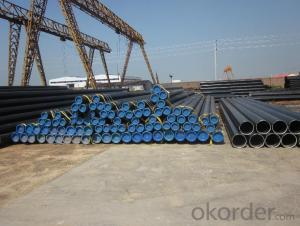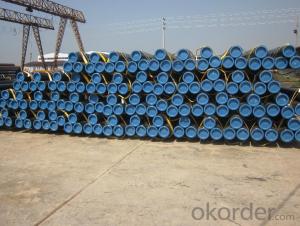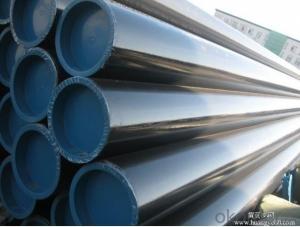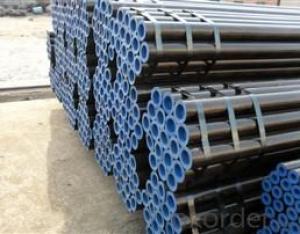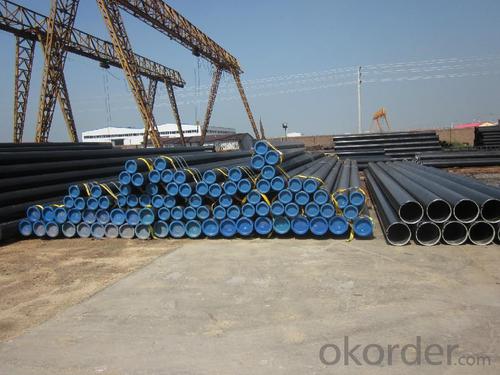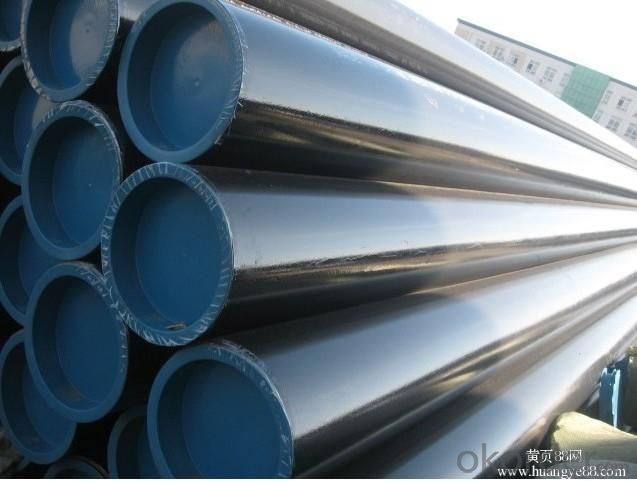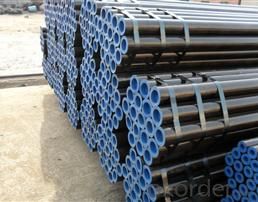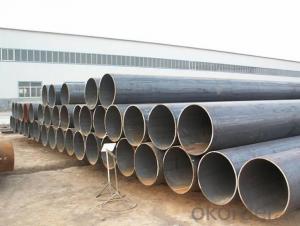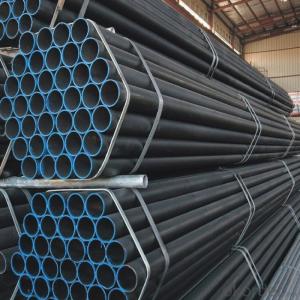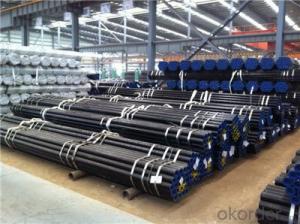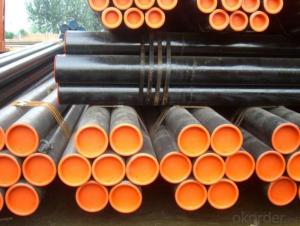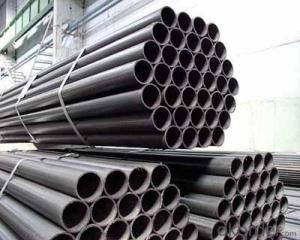CARBON SEAMLESS STEEL PIPES FROM CNBM WITH BEST QUALITY
- Loading Port:
- Tianjin
- Payment Terms:
- TT OR LC
- Min Order Qty:
- 50 m.t.
- Supply Capability:
- 500 m.t./month
OKorder Service Pledge
OKorder Financial Service
You Might Also Like
1、Structure of Steel Pipe Q345 Descrption:
Having vast industrial knowledge of domain, we are offering a quality approved array of Stainless Steel Round Pipe. The Stainless Steel Round Pipe we offer is widely demanded amongst the clients for its sturdiness and reliability. These products are tested for their quality before being introduced in the market.
2、Main Features of the Steel Pipe Q345:
·Highly demanded
·Durable
·Reliable
·resist corrosion
·reasonable price
3、The Steel Pipe Q345 Specification:
Standard JIS, DIN, ASTM
JIS G3445-2006, JIS G3444-2006, JIS G3446-2004, DIN EN 10216-1-2004, DIN EN 10217-1-2005, DIN EN 10305, ASTM A106-2006, ASTM A53-2007, ASTM A789-2001, ASTM A1020-2002, ASTM A179-1990, ASTM A199Grade Cr-Mo alloy, Mo, ST35-ST52, Q195-Q345, CrNi alloy
15CrMo, 10CrMo910, 30CrMo, 15Mo3, 16Mo, St37, St52, St42, St45, Q235, Q345, Q195, Q215, Cr17Ni8, 1Cr13Mn9Ni1NThickness 2 - 50 mm Section Shape Round Outer Diameter 10 - 900 mm Secondary Or Not Non-secondary Application Structure Pipe Technique EFW Certification API Surface Treatment Paint Special Pipe API Pipe Alloy Or Not Non-alloy
Specifications
1.W.T from 2mm to 70mm
2.OD from 10 to 1200mm
3.product by our own factory
4.on time dilivery
4,Steel Pipe Q345 Images:
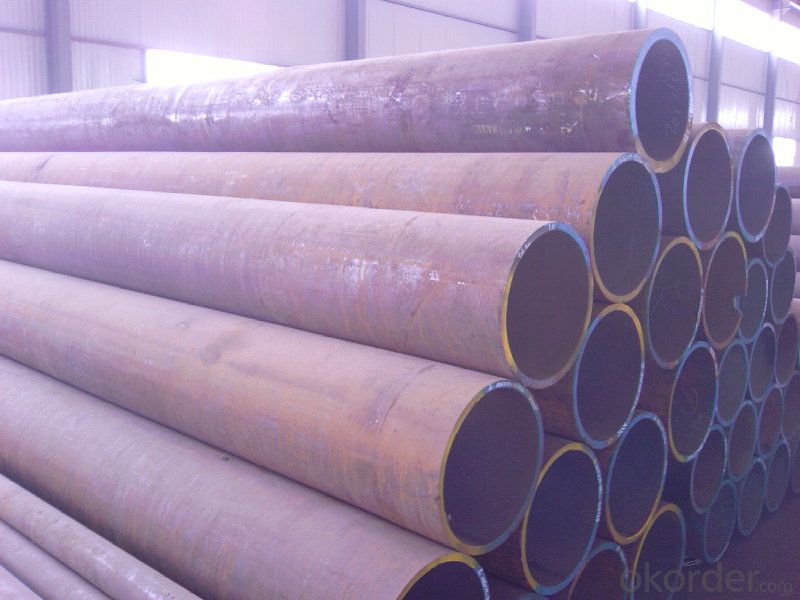
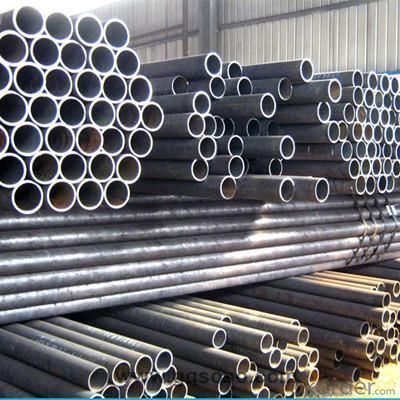
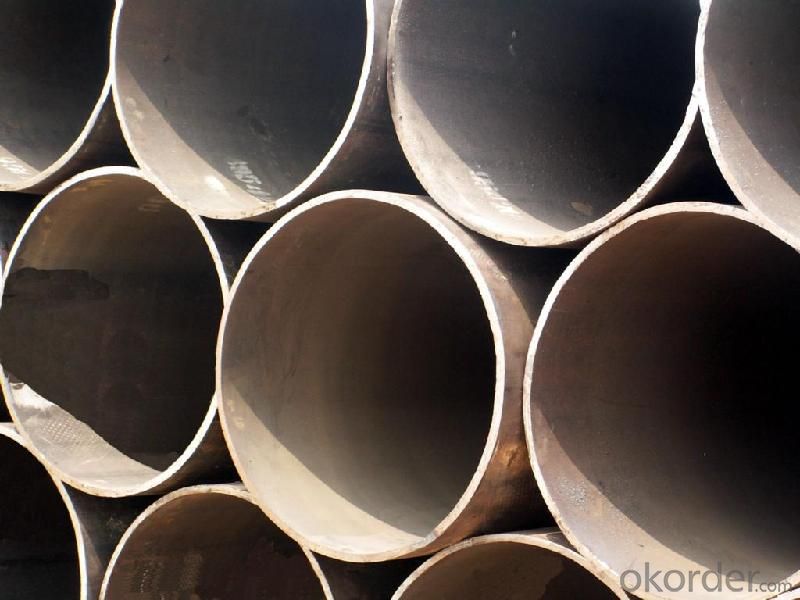
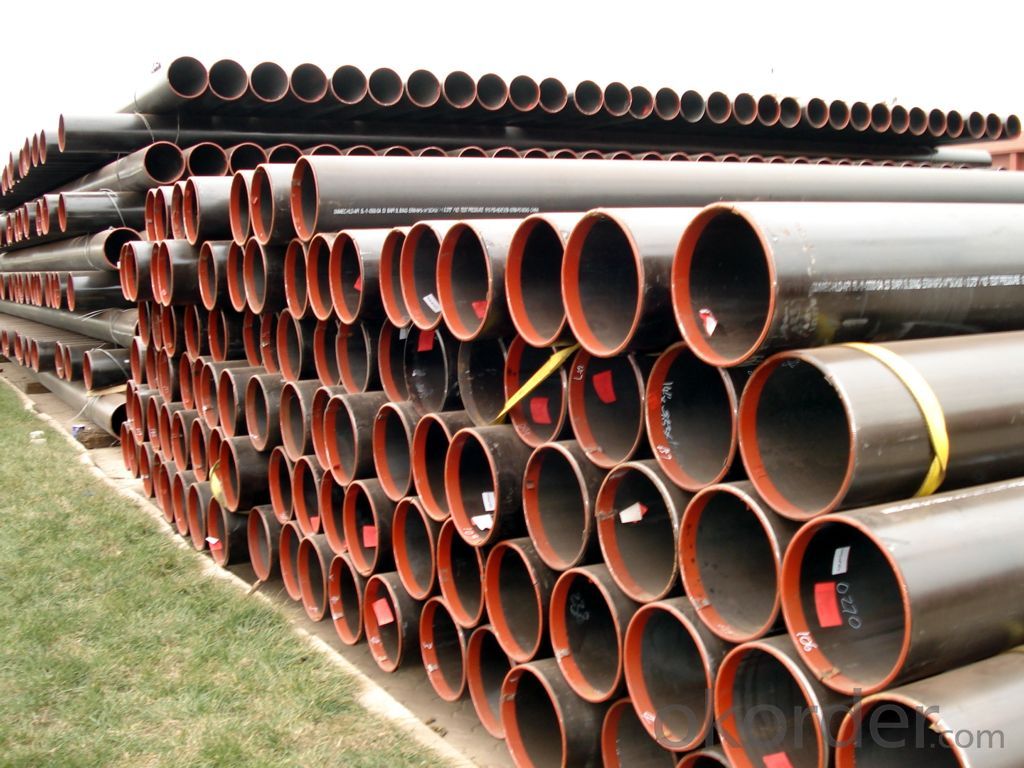
5、FAQ of Square Tube:
①How is the quality of your products?
Our products are manufactured strictly according to national and internaional standard, and we take a test
on every pipe before delivered out. If you want see our quality certifications and all kinds of testing report, please just ask us for it.
Guaranteed: If products’ quality don’t accord to discription as we give or the promise before you place order, we promise 100% refund.
②How about price?
Yes, we are factory and be able to give you lowest price below market one, and we have a policy that “ for saving time and absolutely honest business attitude, we quote as lowest as possible for any customer, and discount can be given according to quantity”,if you like bargain and factory price is not low enough as you think, just don’t waste your time.Please trust the quotation we would give you, it is professional one.
③Why should you chose us?
Chose happens because of quality, then price, We can give you both.Additionally, we can also offer professional products inquiry, products knowledge train(for agents), smooth goods delivery, exellent customer solution proposals.Our service formula: good quality+good price+good service=customer’s trust
SGS test is available, customer inspection before shipping is welcome, third party inspection is no problem.
Any question, pls feel free to contact us !
- Q: How do steel pipes perform in corrosive environments?
- Steel pipes perform well in corrosive environments due to their inherent resistance to corrosion. Steel is a durable and strong material that can withstand exposure to various corrosive elements such as moisture, chemicals, and saltwater. Additionally, steel pipes can be further protected through coatings or linings to enhance their resistance to corrosion, making them a reliable choice for applications in corrosive environments.
- Q: What are the different methods of pipe lining for steel pipes?
- Pipe lining for steel pipes can be done using various methods, each with its own unique features and benefits. These methods include: 1. Spray lining: A specially formulated coating is sprayed onto the inside of the steel pipe, creating a protective barrier against corrosion and chemical damage. Spray lining is a popular choice for smaller pipes due to its cost-effectiveness and quick installation. 2. Cured-in-place pipe lining (CIPP): This method involves inserting a flexible liner into the steel pipe and then curing it in place using steam or hot water. CIPP restores the pipe's structural integrity and is commonly used for larger pipes without the need for excavation. 3. Slip lining: By inserting a slightly smaller diameter pipe into the existing steel pipe and filling the space between them with cementitious material, slip lining rehabilitates pipes with minor defects and extends their lifespan. 4. Fold-and-form lining: A flexible liner is inserted into the steel pipe and expanded to its diameter using mechanical or hydraulic processes. The liner is then folded and formed to fit the pipe's contours before being cured in place. Fold-and-form lining is suitable for pipes with irregular shapes or bends. 5. Coating lining: A protective coating is applied to the inside surface of the steel pipe using spraying, brushing, or rolling methods. This coating acts as a barrier against corrosion and chemical damage and is commonly used for large pipes or those in harsh environments. Each method has its own advantages and disadvantages, and the selection will depend on factors such as pipe diameter, condition, budget, and project requirements. Consulting with a professional pipe lining contractor is crucial to determine the most suitable method for a specific steel pipe rehabilitation project.
- Q: What is the average lifespan of a steel pipe?
- The average lifespan of a steel pipe can vary depending on various factors such as the quality of the steel, the environment it is exposed to, and the maintenance practices followed. However, on average, a well-maintained steel pipe can last anywhere between 20 to 100 years.
- Q: Can steel pipes be used for sewage treatment plants?
- Yes, steel pipes can be used for sewage treatment plants. Steel pipes are commonly used in sewage treatment plants due to their durability, strength, and resistance to corrosion. They can efficiently transport wastewater and withstand the harsh chemical environment found in sewage treatment facilities.
- Q: Can steel pipes be used for automotive applications?
- Yes, steel pipes can be used for automotive applications. Steel pipes are commonly used in the automotive industry for various purposes such as exhaust systems, fuel lines, and hydraulic systems. Steel pipes offer high strength, durability, and resistance to corrosion, making them suitable for withstanding the harsh conditions and demands of automotive applications. Additionally, steel pipes can be easily formed and welded, allowing for customization and ease of installation. Overall, steel pipes provide a reliable and cost-effective solution for automotive applications.
- Q: What are the uses of welded steel pipes?
- The spiral submerged arc welded pipe (SY5036-83) for the delivery of pressurized fluid is made of hot rolled steel strips for tube billets, often spirally formed, welded by double submerged arc welding and used for the transmission of pressurized fluid. The steel pipe has strong pressure bearing ability and good welding performance. After a rigorous scientific examination and test, it can be used safely. The utility model has the advantages of large caliber of the steel pipe, high transmission efficiency, and investment in laying pipelines. Mainly used in the transportation of petroleum and natural gas pipelines.
- Q: What is the difference between galvanized iron pipe and galvanized steel pipe? Or called different, in fact, is referred to as galvanized pipe?
- Seamless steel pipe material is steel, but also seamless, high strength, used in high pressure, harsh environment occasions. The galvanized pipe is only made on the steel tube, which is similar to the so-called antirust paint
- Q: What are the different methods of pipe support for steel pipes?
- Various methods exist for supporting steel pipes, each aimed at guaranteeing pipe stability, alignment, and protection. Some frequently employed techniques are as follows: 1. Pipe Hangers: These devices suspend or bear the weight of the pipe from above. Typically crafted from metal, they can be adjustable or fixed, allowing for easy installation and maintenance. Depending on the application, pipe hangers can take the form of clevis hangers, beam clamps, or pipe rollers. 2. Pipe Shoes: These supports attach directly to the underside of the pipe, providing a stable resting surface. Usually made from steel or other durable materials, pipe shoes prevent pipe movement, absorb vibrations, and distribute weight evenly. They find common use in applications involving high temperatures or requiring thermal expansion. 3. Pipe Clamps: These devices fasten pipes together or secure them to structures. Constructed primarily of metal, pipe clamps come in various sizes and designs to accommodate different pipe diameters and configurations. They provide support and prevent sagging or movement, particularly in areas with directional or elevation changes. 4. Pipe Racks: These structures are custom-designed to support multiple pipes in an organized and secure manner. Commonly found in industrial settings like refineries or power plants, pipe racks store or support large quantities of pipes. Typically made of steel, they can be tailored to suit different pipe sizes and layouts. 5. Pipe Guides: These devices facilitate pipe movement control, especially during thermal expansion or contraction. Fixed to the structure, pipe guides offer a sliding surface that accommodates longitudinal pipe movement. They are frequently utilized in applications involving temperature variations, such as steam or hot water systems. These represent just a few examples of the numerous methods available for supporting steel pipes. The choice of support method depends on factors such as pipe size, weight, temperature, and specific application requirements. Selecting the appropriate support method is crucial to ensure pipe longevity and integrity while preventing issues like sagging, misalignment, or failure.
- Q: Can steel pipes be used for underground sewer lines?
- Indeed, underground sewer lines can certainly utilize steel pipes. Given their robustness, resilience, and resistance against corrosion, steel pipes are widely employed in sewer systems. They possess the capacity to withstand the immense burden of soil and external forces, rendering them highly suitable for subterranean purposes. Moreover, steel pipes boast an extended lifespan and excel in efficiently conveying wastewater and sewage over numerous years. However, it remains crucial to guarantee the appropriate coating or lining of these steel pipes to avert corrosion and further elongate their durability.
- Q: Can steel pipes be used in the automotive industry?
- Yes, steel pipes can be used in the automotive industry. Steel pipes are commonly used in the automotive industry for various applications such as exhaust systems, fuel lines, and structural components due to their high strength, durability, and resistance to corrosion.
Send your message to us
CARBON SEAMLESS STEEL PIPES FROM CNBM WITH BEST QUALITY
- Loading Port:
- Tianjin
- Payment Terms:
- TT OR LC
- Min Order Qty:
- 50 m.t.
- Supply Capability:
- 500 m.t./month
OKorder Service Pledge
OKorder Financial Service
Similar products
Hot products
Hot Searches
Related keywords
